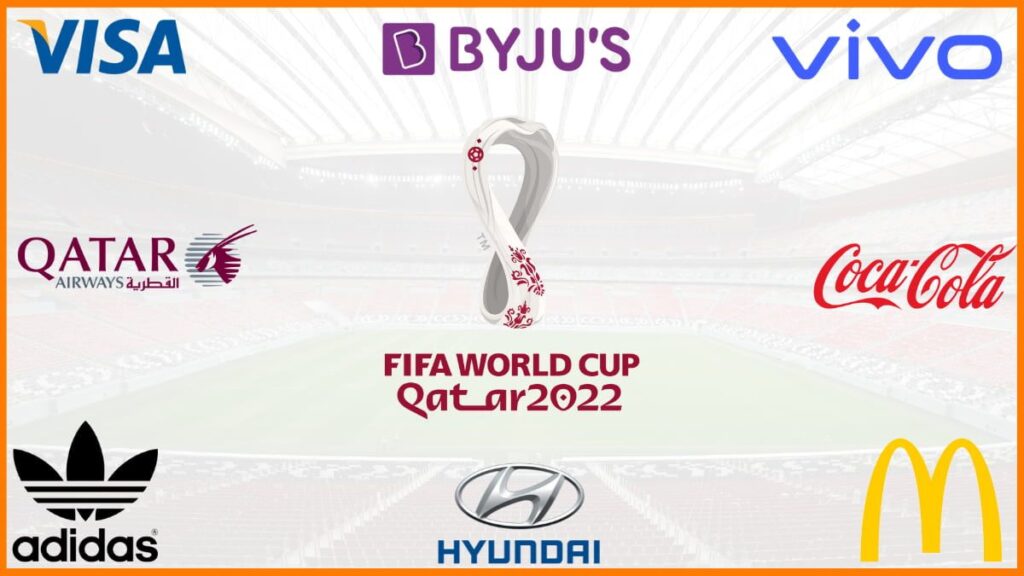FIFA World Cup: Top Sponsors’ Brands Turn to Remedies for Migrant Workers
FIFA World Cup: Top Sponsors’ Brands Turn to Remedies for Migrant Workers: Human rights organizations have asked the Qatar 2022 World Cup sponsors and FIFA to take measures that provide compensation and other remedies for migrant workers and their families who suffered injury, wage theft, or debt from illegal recruitment fees while preparing for the tournament.

A new global opinion poll commissioned by Amnesty International shows that two-thirds of those surveyed, and 72 percent of those who are likely to watch at least one World Cup match, believe that FIFA’s corporate partners and sponsors should publicly call on FIFA to compensate migrant workers who have suffered in Qatar.
Human rights organizations wrote to FIFA’s corporate partners and sponsors urging them to call on the football body to remedy abuses of migrant workers. Four companies announced their support since then – AB InBev/Budweiser, Adidas, Coca-Cola and McDonald’s. Other sponsors offer no public support and have not responded to written requests for discussion about World Cup related abuses. Visa, Hyundai-Kia, Wanda Group, Qatar Energy, Qatar Airway, Vivo, Hisense, Mengniu and Crypto are only some FIFA sponsors.
With just two months until the first ball is kicked, sponsors can do their part to pressure FIFA and Qatar for human rights violations. Human Rights Watch Director Worden argues that brands buy rights to sponsor the World Cup because they want to be associated with joy, fair competition and spectacular human achievement at a sporting event.
There should be a fund built by FIFA and Qatar to ensure workers are treated fairly, as well as support and initiatives by the Qatari government. FIFA should contribute financially to preventing further violations of migrant workers’ rights. The Migrant Workers Centre recommended by Building and Woodwork International should be supported by FIFA.
Sponsors’ Responses: Sponsor responses outlined below indicate their support for remedying and ending the use of contract workers.
AB InBev/Budweiser released a statement in support of taking individual corrective actions to help migrant workers.
Adidas released a statement supporting FIFA and the Supreme Committee for Delivery and Legacy, which said that it wanted to address “all worker rights issues in regards to the 2022 World Cup, including required actions for remediation and due compensation for workers.”
Coca Cola responded to human rights groups by saying they continue to engage in discussions with sponsors and FIFA. Coca Cola chooses to explore the progress being made in Qatar to expand access to effective remedies for migrant workers and encourages FIFA to build on the fair work plan that it has already initiated.
McDonald’s responded to claims they are complicit with FIFA and human rights violations. They describe how they continue to work with FIFA, experts on human rights, and sponsors to support change that values human rights.
The following World Cup sponsors and FIFA partners did not respond to Quartz’s requests for comment. They include 10 other companies that didn’t reply despite having policies in place addressing human rights and environmental, social, or governance standards in their operations and business relationships.
Over the past year, Qatar has introduced a series of important reforms as a response to an International Labour Organization report concerning forced labour, and recently there have been improvements for stadium workers. Despite these actions, serious labor rights abuses continue across Qatar and this is not a new problem.
Amnesty International published a report in May demonstrating how FIFA failed to conduct any human rights diligence when awarding the World Cup to Qatar in 2010 despite well documented risks to workers.
With an ambiguous position on FIFA’s proposal for a remedy for all World Cup-related abuses, and with the kick-off of the 2022 World Cup only two months away, the United Nations fighting for migrant worker rights and labor unions have called on FIFA to establish a comprehensive programme to compensate workers working conditions Doha. The UN Organization has suggested that FIFA lend to Qatar US$440 million from the prize money awarded to all participants of the event in order to achieve this.
It is impossible Qatar or FIFA can do anything to make up for the loss of a loved one, said Nick McGeehan, a founding director of FairSquare, which investigates migrant labor abuses. But financial compensation in the form of penalties could provide some financial relief and reduce lasting pain by providing a one-time solution to families who have lost their loved ones at work.
Human Rights Watch has documented that compensation can be beneficial to migrants in terms of financial stability, health, and community engagement.
After establishing a system to protect workers in 2018, Qatar has had issues with vendors and employers not playing by the rules. This includes employers failing to pay their employees when they were supposed to, or forcing them to work unpaid overtime. In addition, implementation gaps and loopholes remain as more workers try to push for changes while they are still in the country.
Qatar has so far shown little willingness to address the significant and ongoing problems with their country. FIFA, sponsors, and FAs should use their leverage on Qatar to press the authorities to establish a system of compensation for past abuses and that will help resolve these issues.
Figures from the YouGov poll conducted in September of 2022 have been used in this report. All countries were represented with a sample size of 17,477 participants aged 18+. The survey was done online and the data has been weighted.
Stephen Cockburn, head of economic and social justice at Amnesty International, said in light of the public’s response to the amount of money corporations are paying FIFA and want to maintain their brands that they need to stand up for workers rights in Qatar.
